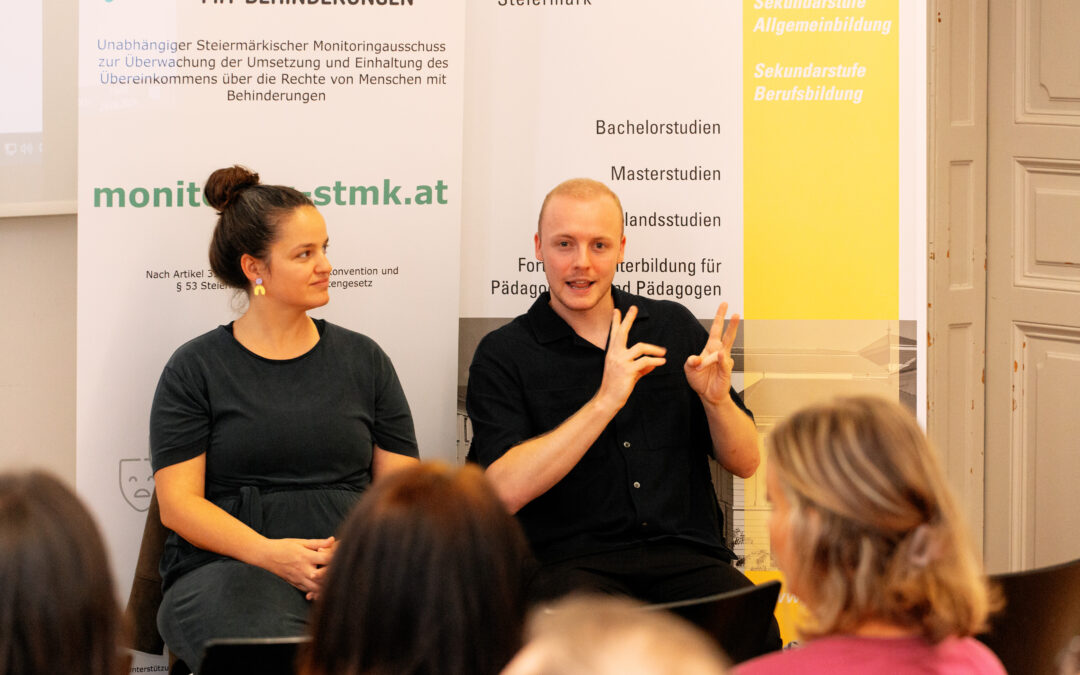On Thursday, September 26, 2024, almost 100 interested people from the Austrian “Community of Practice” (COP) in the Erasmus+ project “Governance in(clusive) Education” – www.govined.eu – accepted the invitation to the project multiplier starting at 3:00 p.m. at the PH Steiermark on the occasion of the anniversary of the entry into force of the UN Convention on the Rights of Persons with Disabilities on September 26, 2008 in Austria.
In addition to representatives from the education sector, from schools, universities, research and competence centers for inclusion and the Education Directorate as well as the Department of Education and Integration of the City of Graz, self-advocates gathered, including the chairman of the Independent Styrian Monitoring Committee for People with Disabilities, Matthias Grasser, parent representatives as well as pupils and students with and without disabilities as well as assistants and NGOs.
The starting point for the maximum orientation towards an universal design was written language accompaniment, furthermore the interpretation by simultaneous interpreters into Austrian Sign Language and the process of an equally simultaneous graphic recording, which made it possible to visualise both the content and the current discussion points without using language and to record them as a graphic protocol.
After an introduction and project presentation by project manager ILin Prof.in Silvia Kopp-Sixt, BEd MA, the participants were given the opportunity to exchange ideas on the actor network map of Styria, which was created by comparing the regions with Bolzano, Tübingen and Barcelona in fact-finding missions with the various target groups. The Inclusive Digital Lab of the Styrian University of Education on Campus East made it possible to produce the actor network map as a threshold pressure for tactile information transfer: https://www.phst.at/praxis/hochschullernwerkstaetten/digital-learning-lab/
This was followed by the keynote speech by Dr. Oliver König from the Bertha von Suttner Private University in St. Pölten, Professor of Inclusive Education and Inclusion Management, took part in the program, which addressed the topic: “How do we think about the future of inclusive education?” In addition to reference lines for the project, he invited participants to actively help shape the future of inclusive education using the “three-horizon model”.
Afterwards, the groups of actors delved deeper into the project’s questions and explored the Activity Zone and the Inclupedia. The participants’ feedback will be incorporated into the final version, which will be released and published at the Final Conference in Stuttgart in early December 2024.
